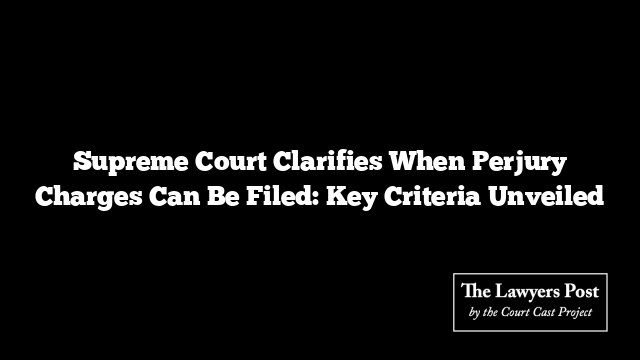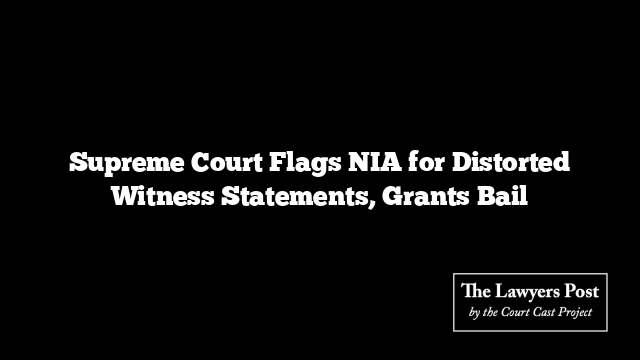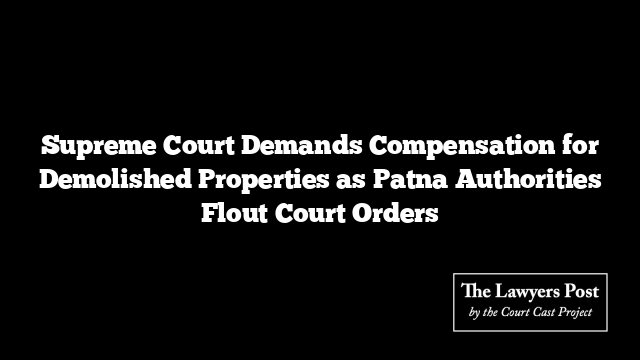In a significant ruling on August 13, the Supreme Court outlined the criteria for initiating perjury proceedings under Section 193 of the Indian Penal Code. This decision came while overturning a perjury case against a litigant, providing clarity on when false statements can lead to legal consequences.
The court, consisting of Justices BR Gavai, Sanjay Karol, and KV Viswanathan, reviewed an appeal challenging the Uttarakhand High Court’s directive for a perjury complaint against an individual who allegedly submitted a false affidavit in a bail revocation case. The appellant, previously accused of rape under false marriage pretenses, had his bail contested by the complainant, leading to the High Court’s order for an FIR on perjury due to inconsistencies between affidavits.
Before the Supreme Court, the appellant argued that denial of allegations in legal documents does not automatically constitute perjury. It was further contended that a court is not obligated to file a complaint under Section 195(1)(b) of the Code of Criminal Procedure unless deemed necessary for justice.
The Supreme Court, elaborating on previous legal precedents, specified the following criteria for initiating perjury proceedings:
- Prima Facie Evidence: The court must find a reasonable basis to believe that false statements were made.
- Interest of Justice: Proceedings should be initiated only when it serves justice, not merely for minor inaccuracies.
- Deliberate Falsehood: There must be intentional falsehood on a significant matter.
- Solid Foundation: There should be substantial evidence, not just suspicion.
- Exceptional Circumstances: Proceedings are justified in cases where falsehood was used to gain favorable court orders.
The judgment emphasized that at least three of these conditions must be met for a court to proceed with perjury charges. In this case, the Supreme Court found that the criteria were not sufficiently satisfied. The statements in question were seen as the appellant’s perspective or denials, rather than deliberate falsehoods.
Consequently, the Uttarakhand High Court’s direction to file a perjury complaint against the appellant was overturned. The Supreme Court concluded that without clear evidence of malafide intent or deliberate falsehood, such proceedings were unjustified.





